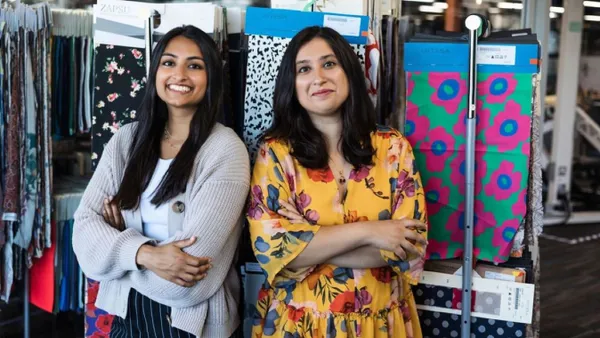Dive Brief:
- Shein is investing 250 million euros, or about $270.5 million, in the EU and U.K. throughout the next five years, according to a press release Wednesday.
- Of the investment, 200 million euros will be used to create the Circularity Fund, which the company said will support start-ups and businesses in Europe that are working in textile-to-textile recycled materials innovation and related fields. Shein said part of this plan involves entering offtake agreements and other commercial partnerships with more mature companies that have existing textile-to-textile production capacity. It will also be used to make operational and commercial investments to enhance the fast fashion giant’s circularity efforts, per the release.
- The remaining money will be used for “supporting the local entrepreneurial ecosystem” in the region, which includes helping small brands, designers and artisans grow their businesses through Shein’s marketplace service. The company will additionally reserve money to bring more EU and UK artists to the Shein X designer incubator program.
Dive Insight:
Shein might also invest in research and development or a pilot of a Shein production facility in Europe or the U.K., per the release.
Donald Tang, executive chairman of Shein, said in the release that the fast fashion company has a “responsibility and an opportunity” to accelerate innovation to address the fashion industry’s environmental footprint.
“The Circularity Fund will build on our support for entrepreneurs and businesses at the forefront of innovation in circular initiatives, with a focus on supporting entrepreneurship and innovation in the UK and the EU, where some of the most exciting work in this space is taking place,” Tang said in the release. “...Given SHEIN’s scale and reach, SHEIN can become a catalyst for the widespread adoption of these solutions across the industry.”
The investment comes as the fast fashion giant has made multiple moves to boost its presence in Europe, particularly the U.K. Last year, Shein bought U.K.-based apparel brand Missguided from the Frasers Group, which analysts said allowed Shein to become more dominant in the market.
Also last year, Shein disclosed its U.K. division revenue with the Companies House for the first time. Between September 2021 and December 2022, Shein earned 1.12 billion pounds, or about $1.44 billion, in revenue in the region.
The company is facing pressure in the EU, however. The European Commission asked Shein and its competitor Temu to detail their compliance to the Digital Services Act. In particular, the two companies have been tasked with describing their online interfaces’ compliance with the law, which says platforms should be designed to not deceive and manipulate users.
The areas Shein is looking to boost with the new funding — ESG and supporting independent designers — have been pain points for the company.
Shein is facing a class action lawsuit in the U.S. filed by independent designers over copyright infringement claims. A similar lawsuit was brought under federal racketeering laws by independent designers last year, and several individual complaints from designers over copyright infringement.
Working conditions in Shein factories have additionally been under scrutiny. A report earlier this year by advocacy organization Public Eye found that employees worked long hours for low wages. U.S. representatives previously asked the company to confirm that its products aren’t made with forced labor.











